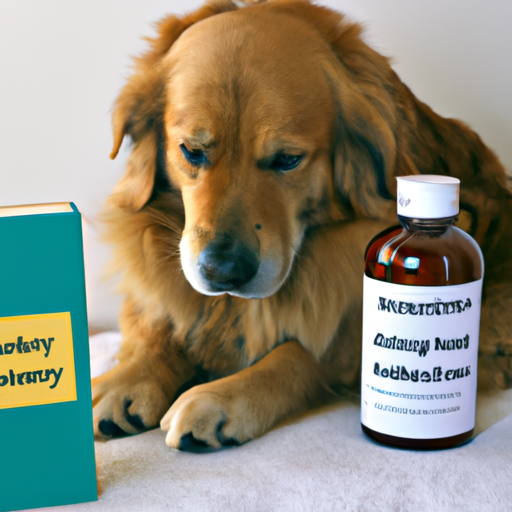Just as we humans have our moments of stress and anxiety, our canine companions experience similar feelings too. As a caregiver, it may be disheartening to see your furry friend in distress, but rest assured, there are ways to help alleviate their anxiety.
Understanding Dog Anxiety
Before delving into treatments, it’s important to comprehend what dog anxiety looks like. Dogs express anxiety in various ways, including:
- Pacing or shaking
- Excessive barking or howling
- Attempting to escape or excessive digging
- Destructive behavior
- Excessive licking or chewing
Understanding your dog’s behavior is crucial in determining the right treatment for their anxiety.
Medications for Dog Anxiety
When it comes to medicinal treatment for dog anxiety, it’s always best to consult with a veterinarian first. They can help you choose the most suitable medication based on the severity of your dog’s anxiety and their overall health condition. Here are a few of the most common medications used:
-
Selective Serotonin Reuptake Inhibitors (SSRIs): These medications, like Fluoxetine, help increase the levels of serotonin in the brain, promoting a sense of well-being and reducing anxiety.
-
Benzodiazepines: These fast-acting medications, such as Alprazolam, are typically used for short-term relief during particularly stressful events.
-
Tricyclic Antidepressants (TCAs): These, like Clomipramine, are often used for long-term management of chronic anxiety disorders.
| Medication | Type | Use |
|---|---|---|
| Fluoxetine | SSRI | Long-term treatment |
| Alprazolam | Benzodiazepine | Short-term relief |
| Clomipramine | TCA | Long-term treatment |
Natural Remedies for Dog Anxiety
For those who prefer a more natural approach, there are several options available:
-
CBD Oil: This non-psychoactive compound found in cannabis has been shown to help reduce anxiety in dogs. Ensure to choose a high-quality product specifically designed for pets.
-
Herbal remedies: Certain herbs, like chamomile and valerian root, are known for their calming effects.
-
Aromatherapy: Diffusing essential oils like lavender can create a calming environment for your dog.
Behavioral Therapies for Dog Anxiety
In some cases, behavioral therapies can be very effective in managing dog anxiety. Here are a few methods to consider:
-
Desensitization: This involves gradually exposing your dog to the source of their anxiety in a controlled way, reducing their fear over time.
-
Counterconditioning: This method involves changing your dog’s emotional response to the source of their anxiety.
-
Positive reinforcement: Rewarding your dog for calm behavior can encourage them to repeat that behavior in the future.
Creating a Safe Environment for Your Dog
The environment plays a crucial role in your dog’s emotional health. Make sure your dog has a safe, comfortable space where they can retreat when they’re feeling anxious. Regular exercise and mental stimulation can also help keep anxiety at bay.
FAQ Section
Q: Can I give my dog human anxiety medication?
A: No, it’s not safe to give your dog human medication without consulting with a veterinarian. Certain ingredients may be harmful or even fatal to dogs.
Q: How can I tell if my dog has anxiety?
A: Signs of anxiety in dogs can include excessive barking or howling, destructive behavior, attempts to escape, and excessive licking or chewing. If you notice any of these behaviors, it’s best to consult with a veterinarian.
Q: Can dog anxiety be cured?
A: While there’s no “cure” for dog anxiety, it can be effectively managed with medication, behavioral therapies, natural remedies, and a safe, comfortable environment.
Q: How do I know if my dog needs medication for anxiety?
A: If your dog’s anxiety is severe or if it’s not improving with non-medical treatments, it’s probably time to consult with a veterinarian about medication.
Q: Is it safe to give my dog CBD oil for anxiety?
A: CBD oil can be safe for dogs, but it’s crucial to choose a high-quality product designed specifically for pets. Always consult with a veterinarian before starting any new treatment.
Remember, while dog anxiety can be distressing for both you and your pet, there are plenty of ways to manage it. Always consult with a veterinarian to determine the best course of action for your furry friend.



